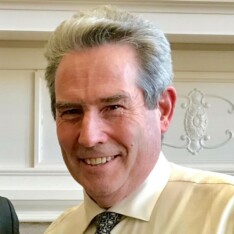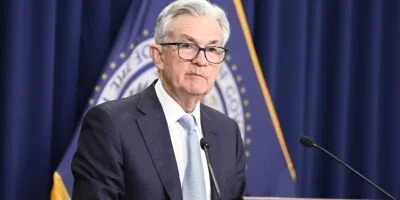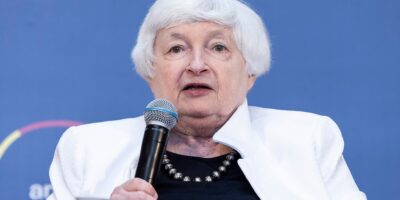Too Much Power?

Whether attributable to Voltaire or Spider-Man, great power and great responsibility come inextricably intertwined, and whether by default or design, the Federal Reserve System of the United States (the Fed) has both. Stipulating its existence and acknowledging the power its founders knew a central bank would have, insulating it from political exploitation was and remains a key concern. Initially tasked with ensuring financial stability in response to destabilizing price fluctuations, the Fed came to possess a “dual” mandate of maintaining stable prices, maximum employment, and moderate interest rates, most recently expressed simply as promoting “maximum employment and stable prices in the U.S. economy.” Today, more than ever, we must ask: “Is the Fed’s power so great that it has no limits, and does the Fed have the independence, will, and responsibility to resist political exploitation of its power?”
The Fed describes itself as “independent within the government,” an agency with agency, if you will. The Fed’s “limits” are defined as accountability measures, including its congressionally ordained mandate, structure, and powers. In The Myth of Independence, Binder and Spindel argue that the co-mingling of independence and accountability represents interdependence between the Federal Reserve and the federal government in directing monetary policy. Congress, they argue, uses the Fed as a scapegoat for economic woes during downturns or recessions and adjusts the Fed’s powers accordingly if the downturn is severe and public outcry is great. This, however, is largely the limit of political influence over the Fed, according to Binder and Spindel. Still, previous Fed chairs have, directly or indirectly, bowed to executive pressures. In her 2023 book Limitless, Jeanna Smialek argues that the Fed recently refused to bow to such pressures and asserted its independence–for better or worse.
Following the SVB debacle, the Federal Reserve acknowledged its lack of omniscience in the bank supervision and regulatory space. Although bank regulation and monetary policy are related, we distinguish between the two and stress that the Fed lacks complete knowledge in either category. Its actions in the wake of pandemic lockdowns, however, revealed broader “limits” to its power than many had understood, even though its authorization in Section 13.3 of the Federal Reserve Act occurred during the Great Depression. Under “unusual and exigent circumstances,” the Board of Governors can clear any Federal Reserve bank to provide funds to individuals, partnerships, and corporations if such entities are “unable to secure adequate credit accommodations from other banking institutions.” The Fed’s dual mandate sets goals of price stability and preventing shortfalls in employment; Section 13.3 allows for blanket lending to achieve what Jerome Powell called the “broad-based and inclusive goal” of maximum employment. As AIER’s Tom Hogan points out, non-bank lending serves as credit allocation for specific groups and not as an appropriate way to increase lending liquidity and stimulate the economy as a whole. With the narrow exception of some SIFIs directly tied to the financial system, the Fed had seldom exercised Section 13.3’s power before 2020. Smialek details the Fed and Board of Governors’ use of Section 13.3 as a careful and strictly temporary program that, to avoid political pressures, was as broad as possible for small businesses, but warns that future applications may not be so prudent. We agree.
Prior Fed chairs have warned against loaning to individual entities not connected to the banking system and against involvement in industrial policy in general. We agree with this position. The Fed’s mandate is clear: stable prices and maximum employment. The Fed’s massive resources and huge sway over the economy, combined with congressional or presidential use of the Fed as a political tool, provide a tantalizing opening for lobbyists, interest groups, and other rent-seekers hoping to gain favor or bar another group’s participation in capital markets and financing processes. This form of deliberate discrimination, whether necessary (as argued in 2020) or not, creates artificially selected winners and losers. Smialek also describes how some activists call for the Fed to restrict its lending to banks and financial institutions with holdings in oil and coal while others encourage the Fed to actively provide low-cost financing to “green” energy sources.
We anticipate that the Fed will face further pressure from external actors to take a focused, activist role in the economy. Congress has not formally proposed such activist changes to the Federal Reserve Act, but the Fed has recently been in the headlines for the recent wave of high-profile bank failures and its pitched battle against high inflation. Public attention in times of crisis, as Binder and Spindel point out, often draws congressional attention with increased legislative proposals concerning the Fed. Smialek quotes former Fed Vice-Chair Randal Quarles, who foresees some asking “why the Fed can’t fund repairs of the country’s aging infrastructure, or finance the building of a border wall, or purchase trillions of dollars of green energy bonds, or underwrite the colonization of Mars” with its seemingly infinite monetary resources. An example with greater immediacy plays out in Marketplace’s Kai Rysdal’s recent interview with the former Director of the U.S. Mint, Philip N. Diehl, who had language included in 31 USC Section 5112, allowing that the Treasury Secretary may mint and issue a platinum coin, with a face value of, say, $1 trillion. He argued that this coin could then be sold to the Federal Reserve and the seigniorage used to solve the federal government’s debt ceiling crisis. Besides the obvious inflationary problems, the larger concern, as with so many others, lies again in the knowledge problem.
The Fed is a powerful entity, but far from all-knowing, as underscored by its SVB admission. In addition to determining winners and losers, the Fed’s artificial misallocation of capital, even to a nobly-intended goal, could devastate the broader economy and those who inhabit it. The Fed, according to Chairman Jerome Powell, must “resist the temptation to broaden our scope to address…social issues of the day” that would “undermine the case for our independence.” Time will tell if future Fed officials are as resistant to political pressures as its current leadership, succumb to seemingly ever-resurgent MMT influences, or exercise great responsibility in maintaining a sound monetary policy. The next generations of Fed leadership hold the extraordinary responsibility of monetary policy’s now almost “limitless” power. Will restraint, or the lack thereof, lead to or reinforce retroactive regrets about granting the Fed such great power? We suspect regret and agree with Hogan and Salter that the Fed would create better outcomes for all if its focus–and power–were narrowed in scope to focus only on price stability.











